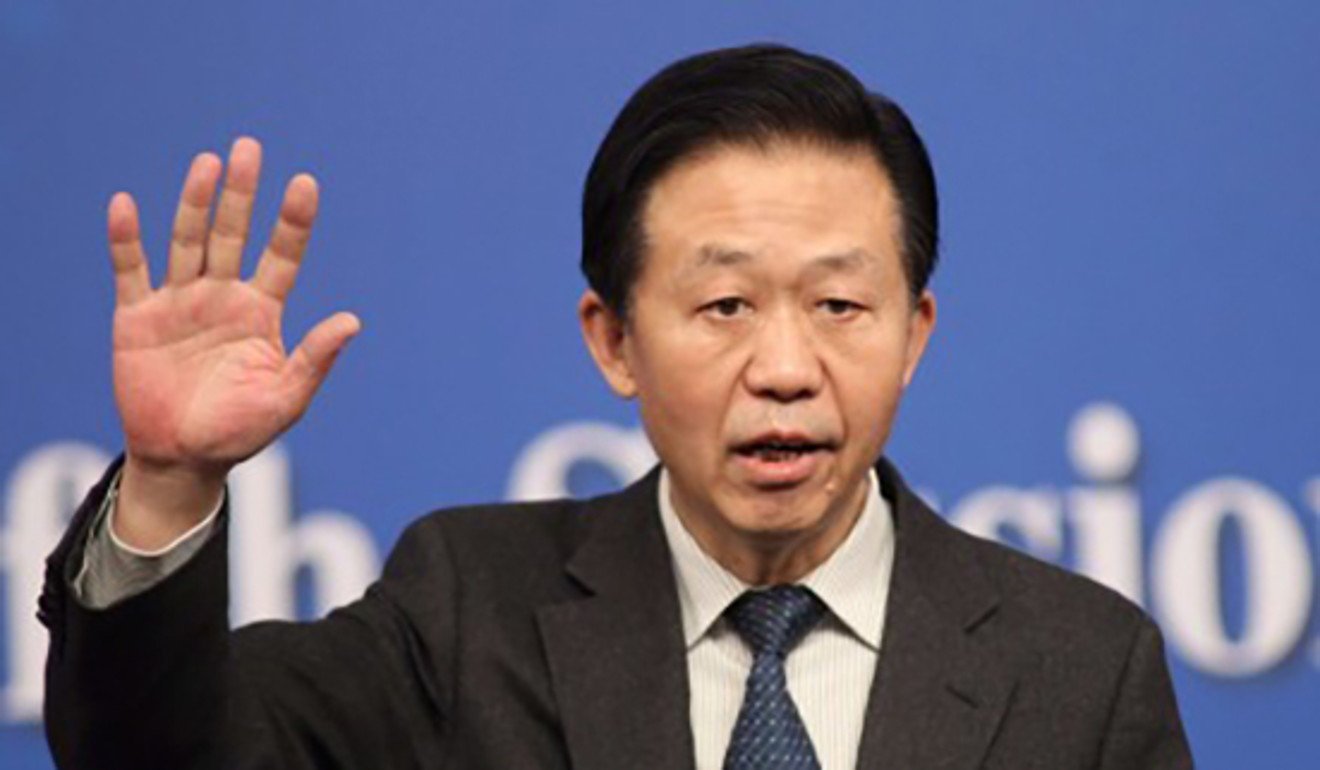
Chinese must live with a dead Baidu, as Google’s return looks doomed
- As Trump teases us with a breakthrough in his US-China trade war talks with Xi Jinping, markets breathe a sigh of relief
- But any deal looks unlikely to break down that biggest barrier to China’s digital economy: the Great Firewall
While details of the agreement are wrapped in secrecy, Trump cited “substantial progress” on issues including intellectual property protection, forced technology transfer, agriculture, services, and currency.
Huang Xiangmo and Meng Wanzhou today, any other Chinese tomorrow?
Commentators in Chinese state media expressed optimism and started to prep citizens that those so-called “concessions” the government was previously reluctant to make were in fact the measures it would have to undertake anyway to move the economy forward and improve people’s living standards.
But the agreement, comprehensive as it sounds, is most likely to miss out one major area of contention: China’s Great Firewall and other barriers to the opening up of its digital economy.

Judging by media reports and official statements from both countries, the digital world has not been high on the agenda of Chinese and American negotiators, other than in relation to US allegations of cyber theft by the Chinese – an issue that was discussed alongside that of forced technology transfer.
Presumably, given the myriad difficult and complex issues on which both sides have been working, they probably focused upon those they thought they had the best chance of agreeing on.
After all, there is a widespread perception that the Great Firewall could be one of the few red lines on which China is unlikely to budge.
US-China trade war: Beijing must tackle structural issues
If that speculation is true, it would be a real shame.
In fact, China’s digital barriers are facing increasing pressure from within as Chinese businesses, academics, and intellectuals have been increasingly vocal about the negative impact of the Great Firewall on the country’s economy, academic research, technological innovation, and its competitiveness in attracting overseas companies and talents.
The latest case in point is the controversy surrounding Baidu, China’s dominant search engine.

It started when a Chinese journalist posted an article on social media titled “Search engine Baidu is dead” with the name Baidu Photoshopped on a grey tombstone. In the article, the author blasted Baidu’s media aggregation service for highlighting unreliable information and its own products and services in its search results.
He accused the company of ceasing its mission as a search engine but rather striving to become a marketing platform aimed at making money through traffic from users searching for content.
The post immediately went viral, striking a chord with millions of hapless internet users – including this writer – who have to grapple with Baidu’s poor quality search results daily.
From football to stocks, meddling Beijing is scoring own goals
In its defence, Baidu said information from its own service accounted for only 10 per cent of its search results and promised to improve its service.
But this is not the first time Baidu has been panned for its poor and misleading services and products.
Back in 2016, a university student who was diagnosed with a rare form of cancer died after receiving expensive but questionable treatment from a less reputable hospital he found through Baidu searches.
A national outcry ensued after an official investigation found that paid-for medical advertising always came up on top of relevant search results and the cyber authorities subsequently forced Baidu to overhaul how paid advertising results should be displayed.
On various estimates, Baidu accounts for between 70 to 80 per cent of China’s search engine market, towering over smaller operators such as Sogu and 360 Search as well as Yahoo China and Microsoft’s Bing.
China’s prohibitive internet policies have helped Baidu, big time.
Google’s exit from China in 2010, triggered by China’s increasing online censorship, has further cemented Baidu’s lead. Before its exit, Google commanded about 30 per cent of China’s market share, trailing Baidu but providing healthy competition and a far better alternative for Chinese internet users seeking high quality search results.

But as Baidu’s quality of service has declined rapidly over the past few years, the public clamour for Google’s return has become louder.
Moreover, China’s academics and businessmen alike have argued the country’s severe restrictions on cross-border data flows – including slow cross-border internet speed and the inability to access global online tools like Google – have damaged China’s competitiveness and innovation.
Back in March 2017, Luo Fuhe, a prominent academic and a vice-chairman of the Chinese People’s Political Consultative Conference, the country’s top consultative body, caused quite a stir by publicly releasing a proposal urging the Chinese government to ease internet restrictions to enable faster access to overseas news and academic websites and search engines.

Then Luo argued, rightly and reasonably, that while the Chinese government had every right to block websites deemed harmful to national security, most of the overseas websites, particularly those reputable ones run by international organisations like the United Nations or foreign universities or research institutes, were valuable resources for Chinese academics – as were online search tools like Google.
Anyone who has tried to search for English-language information on Baidu should know how lousy its service is.
Many have been forced to use virtual private networks (VPNs) to access cross-border data but that has proved an unstable solution given the Chinese government’s increasing crackdown on VPNs.
In recent years, foreign businesses operating in China have consistently lobbied the Chinese government to relax its internet controls.
The TV host taking on the rich, famous and powerful in China
In its latest business climate survey, AmCham China, which represents American businesses in the country, said more than 90 per cent of respondents felt slow cross-border internet speeds and the blocking of online resources harmed their competitiveness as well as their operations.
Similar sentiment has been expressed by European and other foreign businesses in China.
Indeed, at a time when China wants to transform its economy into one driven by innovation and to attract more foreign businesses to set up their Asia-Pacific headquarters within its borders, faster internet access to the outside world and the ability to use the internet tools and platforms with which they are familiar should be seen as crucial to that goal.
Last year, hopes were briefly raised that all the pressure had finally led to some progress, with the US media suggesting that Google was planning a return to China and had been working on a censored version of its search engine, code-named Dragonfly.
Ironically, the ensuing media pressure from the US and the opposition of some Google staff appears to have forced Google to abandon the plan, much to the dismay of Chinese internet users.
For them, even a filtered version of Google would be much better than Baidu.
Now, with competition out of the picture and external pressure less than expected, Chinese internet users have little choice but to live with Baidu – the search engine that is already “dead”. ■
Wang Xiangwei is the former editor-in-chief of the South China Morning Post. He is now based in Beijing as editorial adviser to the paper

